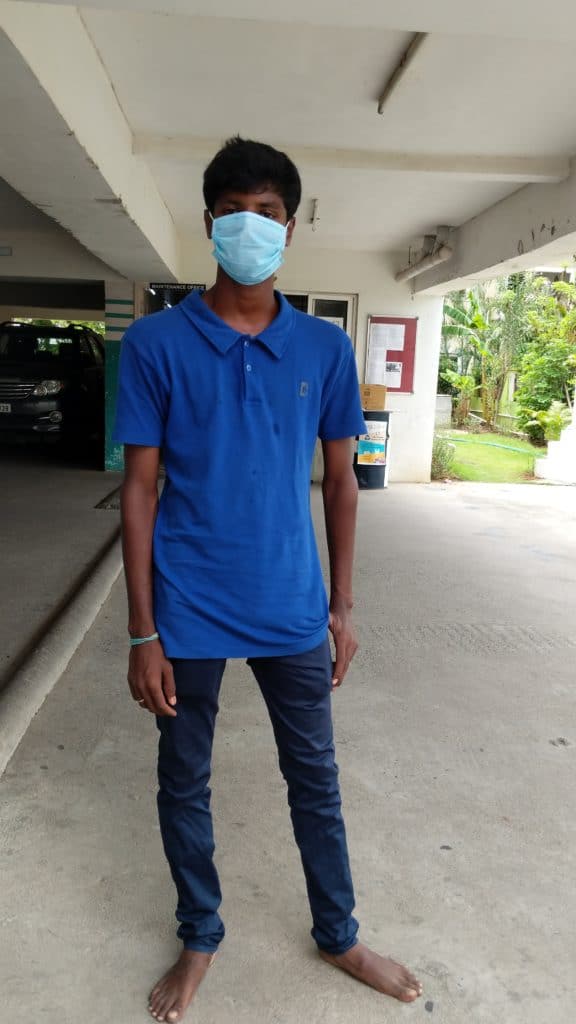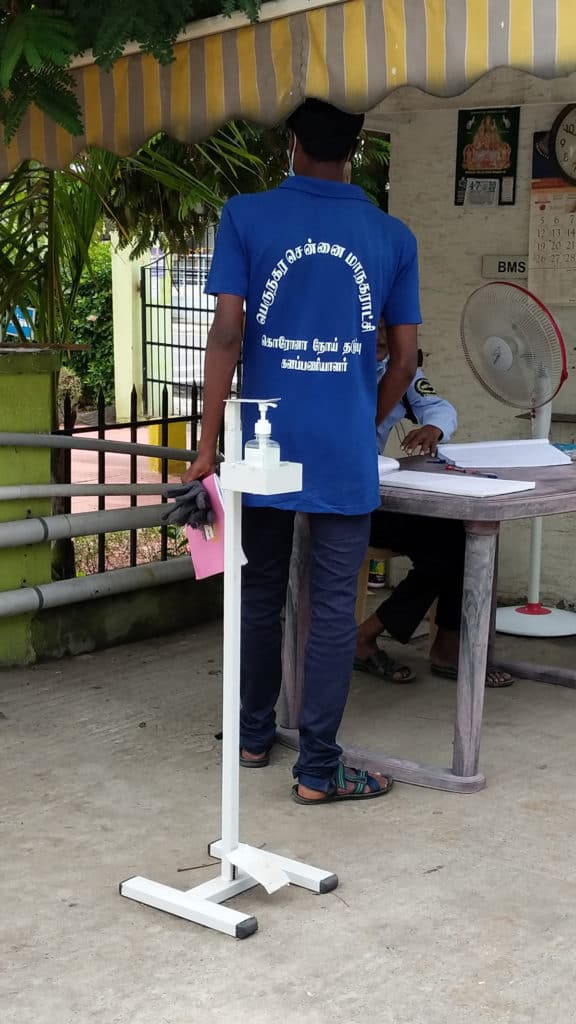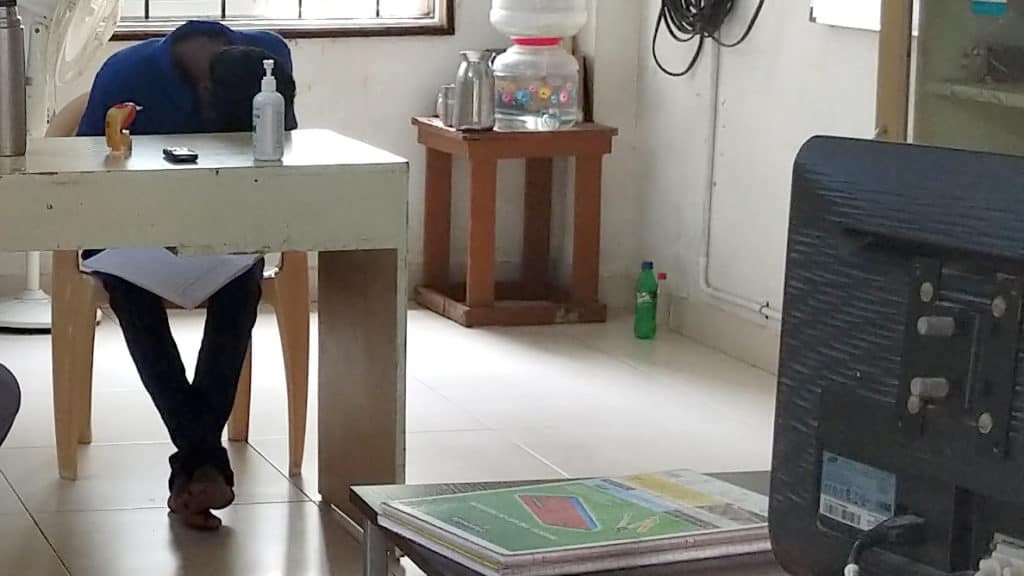During Unlock 1.0, a family of two, who had been stuck out of state, arrived in Chennai. The very next morning they heard their doorbell ring. It was Vijay. He had come to enquire about their well being.
Once Vijay came to know they had travelled last evening, he promptly took their details and stuck a green sticker given by the Corporation on their door, stating that members of this family would be under home quarantine. He briefed them on what to do for the next 14 days, while they would remain quarantined. Over the next 14 days, Vijay would also be responsible for delivering groceries and items that the family needed, until the quarantine period ended.
22-year-old Vijay is one of the 100 odd workers employed on contract by the Chennai Corporation to check in on citizens’ well being during the ongoing pandemic. Each one of them checks around 200 residences daily. “I wake up at 6 am, reach my zonal office by 7 am and log in my attendance. After breakfast, I start on my daily calls,” says Vijay.

Apart from enquiring about residents’ well-being, Vijay and his colleagues are also responsible for curtailing the spread of the virus. “We carry Kabasura Kudineer and vitamin tablets with us. This is distributed in the area when there’s a COVID-19 positive case detected. We individually hand over these medicines at each house, which are expected to improve immunity and strength,” says Vijay. “Our job is also to identify positive cases. Once a case is identified, our supervisors take over and they are around till the patient is admitted,” adds Vijay.
Frontline workers are celebrated as heroes for their commitment to societal well being, often at great risk to themselves. But the heroes are hurting badly. The long days walking door to door are physically draining; to add to that, they often have their own personal and psychological struggles to overcome.
“I am a BE final year computer science student”, says Vijay. “The projects and interviews for this year have all come to a standstill due to COVID. The future looks uncertain. My college has requested everyone to make a presentation and submit via WhatsApp but I do not have a smartphone and as a result, my team is stuck. I will be able to resolve this only after I get this month’s salary,” he adds.
Instructions such as ‘Wash your Hands’ and ‘Wear a Mask’ are a constant refrain on the lips of Vijay and his colleagues. As frontline workers who are exposed to constant risks, they have internalised it themselves and maintain utmost hygiene. But in spite of that they often face ostracization in their neighbourhoods and have to conceal their realities outside the house.
One of the workers operates in stealth. The people in his area do not know where he works. Leaving home in their uniforms is also a risk as that could let out an inkling of the work they do. “So we change into our uniforms in the zonal office,” says Vijay.

For a little kindness
It is not that all residents welcome them eagerly, either. “There are a few people who speak to us nicely, but many of my colleagues have encountered rude residents on several visits,” says Vijay, “Asking for personal details is part of our job, but residents do not like that and refuse to share. They insult us and take out their frustrations on us.”
A lot of apartments do not allow them inside. They are stopped at the entrance as residents are scared that they may be carriers of the virus. In such cases, the supervisors and AEs of the specific zone have to step in and explain their roles and the work they do to the associations and families. “Some residents apologise and we move on,” he adds.

What keeps Vijay going
A frontline worker’s salary depends on the work he does. There are random inspections by the supervisors to ensure that these people report to their designated area and complete all the necessary checks. As a result, they cannot miss a single day.
But despite the nature of work that involves risk, these workers are not covered by insurance. If they are tested positive, they are on their own and this is disappointing.
“Our supervisors and AEs take good care of us. They check on us daily. So we keep going,” says Vijay.
Vijay also says, “We are collating statistics for the Corporation to act. Our visits help us identify the population of the area, the dominant age group of residents here and their pre-existing medical conditions. This information helps us understand which area is more risk-prone. For example, a location with a high population of people over 60 is considered a potential risk zone. This means these houses have to be checked daily without any miss.”
“Our work is just not asking people if they are fine. We are actually helping in reducing the spread of this disease. So I am happy to contribute to society this way. I’ll remember this my whole life,” says Vijay as he signs off.
Good service by volunteers.
Good coverage
Very good article. It clearly shows the risk the young guys like Vijay are going through.
As citizens, we need to be thankful to people like Vijay and respect them, which will keep these youngsters to face the world with a smile